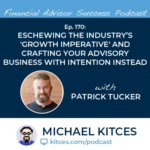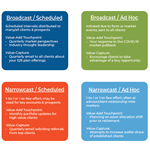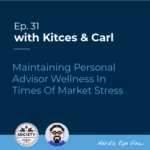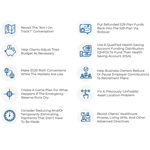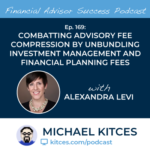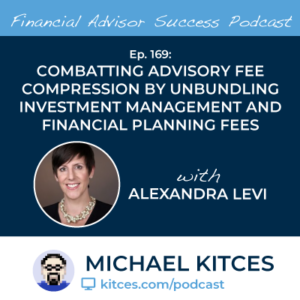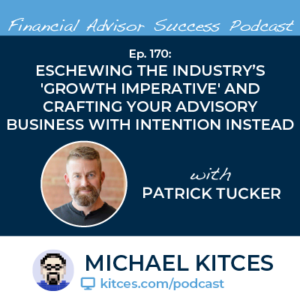 Welcome back to the 170th episode of Financial Advisor Success Podcast!
Welcome back to the 170th episode of Financial Advisor Success Podcast!
My guest on today's podcast is Patrick Tucker. Patrick is the founder of True Measure Wealth Management, an independent RIA based in Omaha, Nebraska, that oversees nearly $150 million of assets under management for 89 client families. What's unique about Patrick, though, is his background in business operations and financial management, from having started his career at UPS, and how he's translated those business management skills to run his own advisory firm. Not necessarily to grow and scale the largest business he can, but to very intentionally craft an advisory firm to achieve his own personal goals instead.
In this episode, we talk about how Patrick built his very intentionally designed advisory firm. The two niches he forms with executives from transportation companies and small local business entrepreneurs like himself, how he splits his advisory fee structure between AUM fees for clients with portfolios he can manage and three tiers of flat planning fees from $8,000 to $16,000 a year for the clients in this niche who may have significant wealth but not in a liquid form to manage. The key business metrics that Patrick focuses on to ensure he's spending his time and the business resources properly, and the three P's – personality, participation, and profitability – that Patrick uses to evaluate each prospective client to decide if he wants to work with them in the first place.
We also talk about Patrick's journey through the advisory business, why he decided to transition from the independent broker-dealer environment to the RIA channel, how he was ultimately able to nearly triple his business in the first two years after he dropped his affiliation with FINRA to go fee-only, why Patrick chooses to use contractors and outsourcers and to keep his internal team very lean, and how Patrick does regular process reviews internally with his staff member to evaluate whether they're really doing the right thing for clients and whether those things are really being done in the most efficient manner possible.
And be certain to listen to the end, where Patrick shares how he overcame the growth imperative pressure that the industry tends to put on all of us as advisors that we have to grow, grow, grow; even if we don't really want or need to grow anymore for our own personal goals. The way Patrick's own path changed by getting involved with Strategic Coach, and why he ultimately decided to launch his own coaching business for advisors to teach them how to craft their own intentionally designed businesses to serve their own goals as Patrick did with his own firm.



